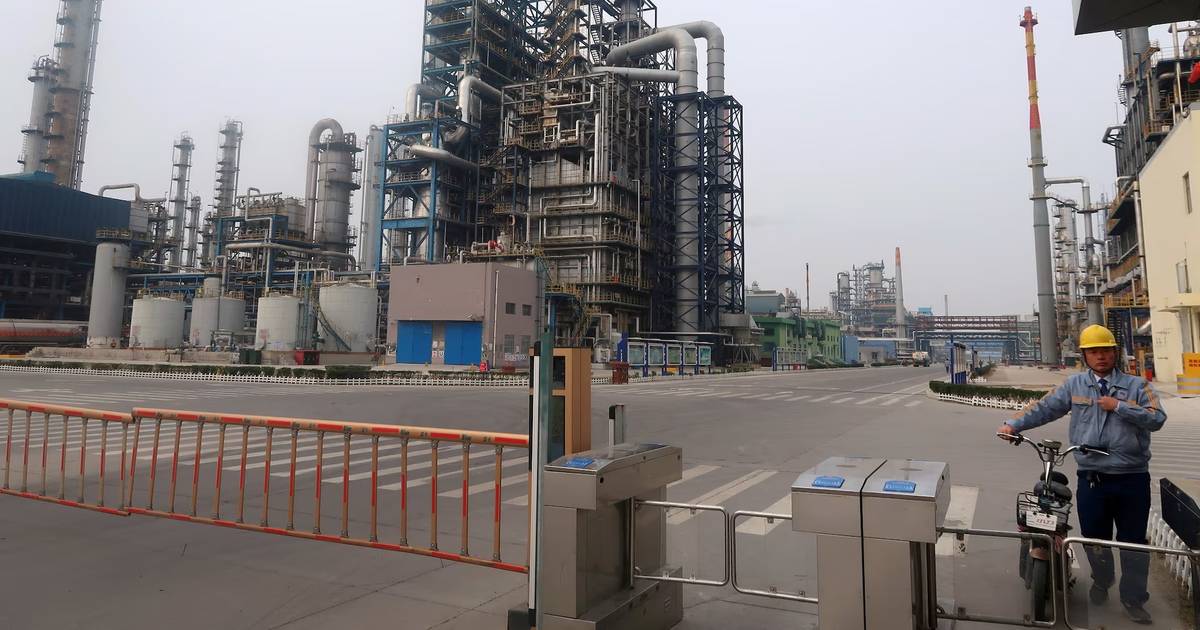China Halts Iran Oil Orders Amid U.S. Sanctions: Impact on Teapot Industry
Small Chinese non-state refineries, often referred to as “teapots,” are currently taking a cautious stance on new orders of Iranian crude oil. This decision follows recent sanctions imposed by Washington on Shouguang Luqing Petrochemicals, a refinery located in Shandong. The implications of these sanctions are significant for the teapots, which are crucial players in China’s oil import landscape.
According to insights from the maritime data firm Kpler, there have been no new deals for Iranian crude reported since March 20. This trend highlights the ongoing uncertainty surrounding the purchase of Iranian oil by these small refineries, which are primarily based in Shandong and play a vital role in China’s energy supply chain.
Refineries are currently evaluating the risks associated with continued purchases of Iranian crude. They are particularly attentive to the repercussions faced by Shouguang Luqing Petrochemicals, which boasts a refining capacity of 60,000 barrels per day. The current market dynamics reveal several critical points:
- Risk Assessment: Many teapots are assessing the potential risks involved in purchasing Iranian crude, especially given the sanctions against Luqing.
- Financing Concerns: While there is no immediate indication that banks have stopped financing Luqing, the refinery’s ability to secure funds may impact the decisions of other refineries reliant on Iranian crude.
- Monitoring Developments: Teapots are closely monitoring the situation to gauge how sanctions affect operational capabilities and market access.
Despite the cautious approach towards new orders, China’s imports of Iranian crude are expected to show a notable month-on-month increase in March. As of March 26, vessels not listed under the US Office of Foreign Assets Control (OFAC) sanctions have successfully discharged Iranian cargoes at Chinese ports. This suggests that, as of now, Chinese ports have not begun to refuse Iranian crude, even amidst tighter US sanctions.
It’s important to note that Iran’s oil sales to China faced a significant decline in January. Data from Kpler indicates that oil deliveries from Iran to China plummeted to below 850,000 barrels per day during this period, a stark contrast to over 1.8 million barrels per day recorded in October of the previous year. This decline underscores the volatility and challenges faced by Iran in maintaining its oil exports.
The recent moves by the US to sanction Huizhou Huaying, an oil terminal in southern China, may prompt a reassessment among ports regarding the risks of accepting vessels that are under sanction. This development adds another layer of complexity to the already intricate relationship between Iranian crude suppliers and Chinese refineries.
Interestingly, data reveals that two Aframax tankers, which were blacklisted by OFAC earlier this year, managed to discharge Iranian crude at the ports of Yangshan and Dongying this week. This occurrence raises questions about the enforcement of sanctions and the operational capabilities of Chinese ports in handling Iranian oil.
The US sanctions on Shouguang Luqing Petrochemicals are part of a broader strategy by Washington to exert economic pressure on Iran, aiming to disrupt its access to financial resources. As a result, Iranian oil sales are a key target of these sanctions, impacting not only Iran but also its trading partners, particularly in China.
In summary, the landscape for Iranian crude imports into China is currently characterized by caution and uncertainty. The teapots, while continuing to evaluate their options, are navigating a complex web of regulatory and market pressures. The outcomes of these developments will be crucial, not only for the refineries themselves but also for the broader dynamics of global oil markets.






